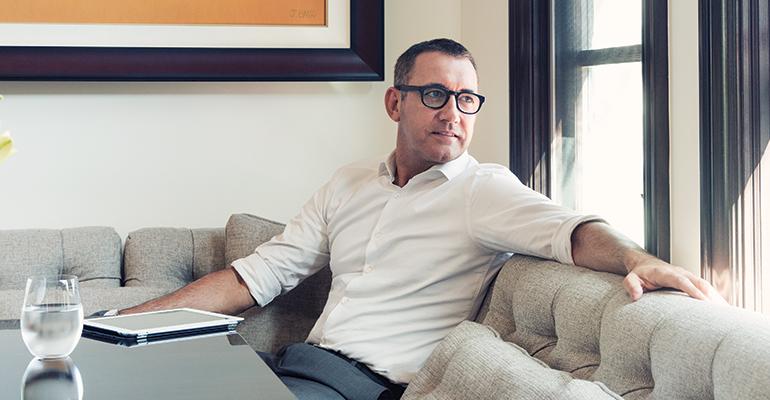Joe Duran, the founder of RIA firm United Capital, knows something about keeping risk and fear at bay.
He grew up in a war-torn world where carrying a machine gun was considered normal and the sound of shooting echoed regularly outside his bedroom window. There were military raids and mandatory curfews, all the elements of life during wartime.
The country then known as the Republic of Rhodesia was an orphaned state in southern Africa and a colonial legacy of the British Empire struggling, violently, with a system of white-minority rule and racial segregation. Horror stories of families being murdered in their homes by black nationalists were common.
“We had neighbors where we lived where their whole family was massacred,” Duran says. “They were just found dead, all of them, in a pile in the living room.”
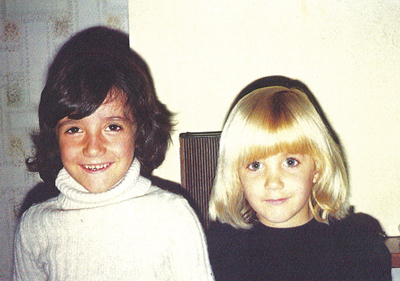
His own home offered little respite; his parents were divorced and his father, an American businessman whose own company had gone bankrupt, had violent tendencies. He once broke into the family’s small cottage home with an ax and hit the 11-year-old Duran as he tried to protect his mother and sisters. His father fled the country soon after and Duran has not seen him since.
Yet today, 10,000 miles away from the country now known as Zimbabwe, the 46-year-old founder of RIA United Capital Financial Advisors sits in his Newport Beach, Calif., office dressed in a crisp red, white and blue button-down shirt, drinking a concoction of spinach and cashew milk, discussing the merits of wooden floors over carpet. He’s planning the firm’s imminent move to a larger space. “I care about aesthetics,” Duran says to Gary Roth, his chief financial officer, who is arguing in favor of the less-expensive carpeting option. “[Carpeting] doesn’t withstand the amount of coffee that gets dropped.”
Duran is enthusiastic about the new open-floor plan, employee lounges and a studio to produce training and marketing videos, and he is involved in all the details. United Capital has grown tenfold since its inception and is one of the more unique financial planning retail-facing RIAs in the country. It has 400 employees and 72 advisors managing $10 billion in assets, and is on track to make $116 million in revenue this year, up 38 percent. He aims to double that revenue by 2017, and to do so by appealing less to portfolio performance and more to helping clients navigate all points where their lives and their money intersect. His advisors use an orderly and thorough process of carefully crafted questions and conversation starters, created by Duran and designed to uncover clients’ sometimes unspoken motivations, values and goals. More so than other RIAs that talk about “holistic” planning, Duran’s advisors are counselors and therapists as much as they are financial managers.
It’s a good life. Duran lives nearby with his wife Jen and three daughters in a home with an ocean view. He often thinks about the likelihood of his own life path. “The odds of me getting to this place are so ridiculously absurd that it makes no sense whatsoever,” Duran says.
Down and Out in London
After the incident with his father and the ax, Duran fled the house and into the yard; he felt powerless, vulnerable and unable to protect his loved ones. Yet there was a moment of clarity as well. He saw his dog Sydney nearby. Thedog was breathing through a windpipe in the back of his shaved neck, his front air passages permanently damaged after being tangled in barbed wire. It was, Duran thought, a miserable fate for the animal befitting his own. Yet the dog seemed happy. “If this dog can have five seconds of happiness, then I’m sure there’s five seconds of happiness for me out there.”
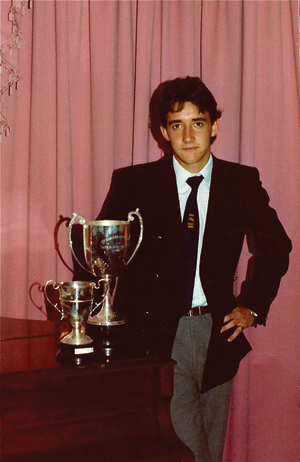
“There’s nothing as terrible as being in a situation like that where you’re truly helpless. From there, you become fearless,” Duran says.
Duran, driven in part by visions of riches portrayed in American television shows like “Dallas,” was determined to work hard enough to leave Rhodesia. He took odd jobs throughout high school, selling hot dogs, farming a small plot of land, working as a night manager of a clothing factory and as a boat mechanic. None were glamorous, but he made enough to get to London by the time he was 18, only to be mugged on his third day there. Duran lost his passport, clothes and money. He was left with 36 pence in his pocket.
He wasn’t going to give up. “If you believe the world’s out to take advantage of you and hurt you, you’re going to take a different path than the path you take if you say, ‘You know what? Even if it’s scary and even if it turns out badly, I will learn something important.’”
That night, Duran slept in the South Kensington train station—the only underground station that had a toilet in it. Duran met another young traveler in the station, Dave Rogan, from America, who had also been mugged. The next day, the two men walked to every single restaurant and service establishment they could find, asking for work. One hostel, called the Corfu Hotel, had openings. Duran worked as a night manager there, making sure young travelers didn’t break anything and weren’t sleeping in beds they hadn’t paid for.
“And then I had a big dilemma when I got my first paycheck: Do I buy clothes or eat food? I bought one pair of pants, discounted jeans and then fed myself some food.”
Determined to see all he could, Duran traveled further afield in Europe picking up odd jobs whenever he ran out of money. He flew to the U.S. in 1989 with $600 to his name and stayed with friends on the West Coast whom he had met in Europe. While college was not part of his plan, he ended up playing rugby at the University of California at Berkeley and taking some classes.
He eventually got a scholarship to study and enrolled in the university full-time. In 1990, he traveled to Spain to study abroad. Hanging out in a divey blues bar on Plaza Mayor, he met his future wife, Jen, a student from Beverly Hills, also studying abroad.
“I did the full head turn, and he’s got this long hair, biker jacket and his earring,” Jen recalls. “A total rebel. The boy my mom doesn’t want me bringing home.”
They would run into each other three other nights that week, coincidentally, before Duran handed over a phone number.
Jen’s father had died in a Delta airplane crash when she was 15 years old. And on her father’s birthday, a sad day for her, she sat down with Duran on a bench and shared what had happened to her father. That was the day of their first kiss, and the two were married exactly three years later, on her father’s birthday.
Down to Business
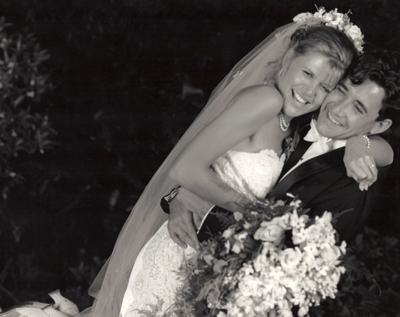
After they married, the couple ended up in Southern California, where Jen grew up. Her father had been an investment banker at Batemen Eichler, and the family had many connections to the finance industry.
One of those connections was Bob Doede, whom Duran met in 1992. Doede had a majority interest in Centurion Capital Management Corp., a small investment management firm in Los Angeles, and offered Duran an internship paying minimum wage.
“I called my partner and I said, ‘This kid’s coming in to see you. Hire him,’” says Doede, now chairman of United Capital. “And he said, ‘OK, what is he going to do?’ I said, ‘I don’t know, but he’s bright and he’s energetic and he’s just desperate to get in the business.’”
Over the next nine years, Duran worked his way up to the head of sales, and lead the firm’s marketing efforts. When Doede asked him to take over as president, Duran was all of 28 years old and he originally refused, feeling he wasn’t qualified. When the replacement candidate left a few years later, Duran stepped in.
General Electric bought Centurion Capital in 2001, and Duran cashed out. His 13 percent ownership stake was worth an estimated $13 million.
He achieved the wealth, but he was surprised to find he was still fearful.
“I went from being petrified of not having any money because it was all locked up in a private company to being petrified that I would lose what I’d made,” Duran says. “I never felt a sense of release.”
As a child, Duran would play in long chess tournaments, often making it into the final rounds. In the same way one plays chess, Duran’s mind is imagining the worst-case scenario, Jen says.
“He always has to go down the path that’s the one he doesn’t want to end up on,” Jen says. “He never wants to go back to where he was [in Zimbabwe], and that’s just never going to happen.”
“The minute that deal happened, he was an insane maniac, up every morning at 4:30 with this manic energy,” Jen recalls. “He didn’t know what to do with himself.”
The Birth of United Capital
The idea for United Capital came from Duran’s own need for someone to help him sort through his complicated emotions about money.
“What someone should’ve told me when we were selling the company and I was 34 is, ‘Joe, you’re a young man, and you’ve got your whole life in front of you. You should take some time and go have a vacation.’
“I felt like there’s no company that I knew of that helps people with the choices that they make, rather than the investments that they make. That was really the very starting point to say, ‘I think I can build that company.’”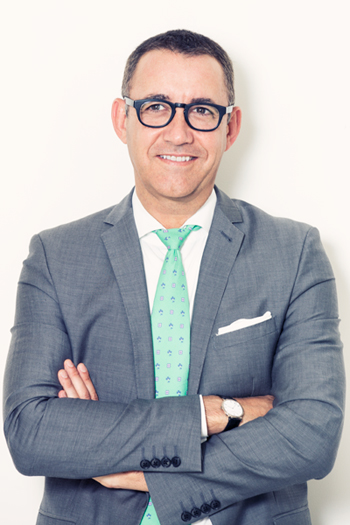
In 2005, United Capital was born, with help from Doede and some of his friends who agreed to invest in the startup. The original business plan called for a much smaller operation, growing to $30 million in revenue and 150 employees in the first five years. But the financial crisis of 2008 made the opportunity much bigger.
“It made what we do a lot more interesting,” Duran says. “It wasn’t just an asset management and advice firm; people need help making smarter decisions and having a discussion about what sacrifices they need to make. Because the markets are not the driver of people’s success and failure; it’s the decision-making process that’s the driver of their success and failure.”
Duran leaves little to chance, says Mike Capelle, senior vice president of platform and technology at UC and the longest-tenured employee of the firm, explaining the firm’s process-driven culture. “He forces processes and systems, and he understands how much that makes up for what his natural dispositions are,” Capelle says.
This carries through the advisor level as well. Duran has called his vision for United Capital the “Starbucks” of financial advisory firms, in that every office holds the same experience for a client regardless of where they are.
Advisors who join UC get a partnership stake in the company, but they also get the company’s name on the front door instead of their own. There are processes aimed at creating greater efficiencies, including a checklist for the things that must be covered at all client meetings to ensure that the investor experience is consistent from office to office. One standard exercise called “Honest Conversations” employs a set of cards with value statements to help draw out clients’ feelings about money and financial decision-making.
United Capital advisors are required to use the same tools, such as Honest Conversations and Money Mind, an online game that helps clients determine how they make financial decisions. But the end result—the way the advisor assembles a client’s financial plan—is personalized, Duran says.
“Starbucks is the same: You have the same coffee; you have the same milk. The subcomponents are the same. The way you blend them is completely personalized exactly the way you want.”
The firm may not have 100 percent embracement of the model by all their advisors yet, but the Honest Conversations approach goes beyond the traditional seven-question risk questionnaire, says Scott Smith, director of research at Cerulli Associates.
“It sounds all touchy-feely and lovey and huggy, but understanding your relationship with money is an important part of the financial advisor process,” Smith says. “And I think that’s a big part of the value proposition in the financial planning space—having people really understand their motivations and desires and what they’re there for, instead of saying ‘I beat the S&P 500 by 100 basis points.’”
Back in his office preparing to move United Capital to the next level, Duran is typically calm and rational under pressure, a trait Roth believes comes from the personal circumstances he has faced.
“Nothing that we can confront here is too big; it can’t be at that level of stakes of whatever he experienced when he was a kid,” Roth says.


